|
The mother-house of the Carthusian Order lies in a high valley of the Alps of Dauphine, at an altitude of 4268 feet,
fourteen miles north of Grenoble. The monastery is located on open pasture. To the east the ridge of the Grand-Som towers
above its roof, on the south the road approaches through a narrow gorge, while on the north and west the valley is shut in
by heights covered with woods, due to the planting of the earlier monks. This land is now the property of France.
The first monastery, built by Saint Bruno in 1084 was located were the chapel of Notre-Dame de Casalibus now stands.
It was destroyed by an avalanche in 1132, and the new buildings were erected on part of the site of the present grand
cloître. The monastery was burnt eight times between 1320 and 1676.
Some time after the last fire, Prior Innocent Le Masson, began to rebuild the greater part of it in the somewhat
cold and heavy style of the period. His work was solid, and there is a severe monastic element about it. The buildings of
today are substantially as he left them, though they have been extensively restored during the nineteenth century. They are
on the typically Carthusian layout, with the addition of the great guest-houses and capitular hall, constructed to accommodate
the Carthusian priors attending the general chapters.
The most ancient portions are the Gothic parts of the grand cloître (over 700 feet long) and the church,
which dates in part from 1320 or perhaps earlier, but owes its present form to restoration in the seventeenth and nineteenth
centuries. The monastery, with a small portion of the surrounding pastures, was rented from the State till, in accordance
with the Association Laws of 1901, the last Carthusians were expelled by two squadrons of dragoons on the 19th of April,
1903.
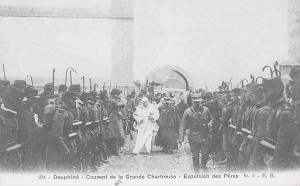
The monks of La Grand Chartreuse, driven into exile with the prior general, found refuge at Farneta, in Italy,
until 1929, when Montrieux, the first of the French charterhouses to be restored, was reopened. Only in 1940
were the monks able to re-occupy La Grande Chartreuse.
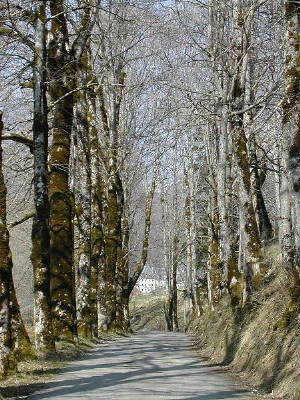
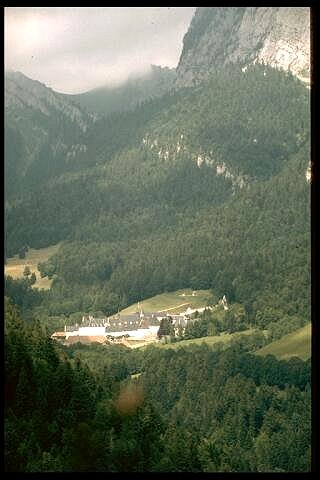
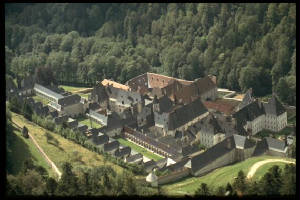
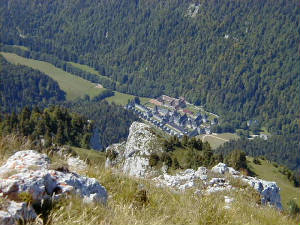
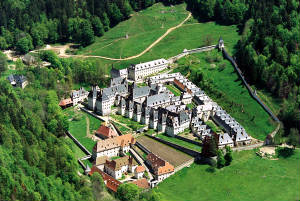
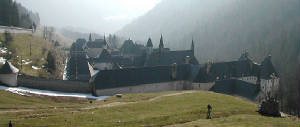
The monks live in cells arranged along three sides of a courtyard. Each cell is in effect a tiny house, with a room for
work, a room for prayer, a bedroom and a miniature garden. A hair shirt is worn, but meals are prepared by lay brothers and
are passed in through a hatch.
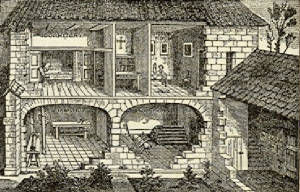
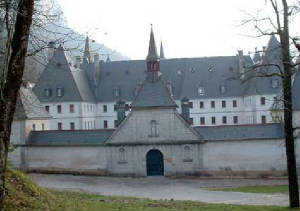
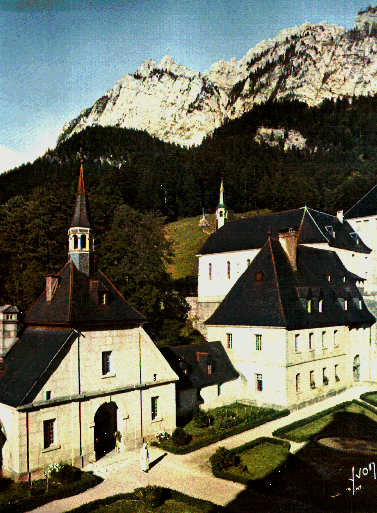
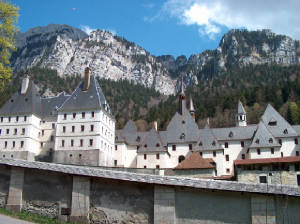
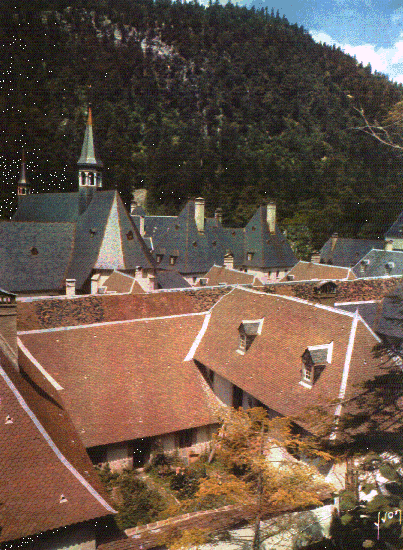
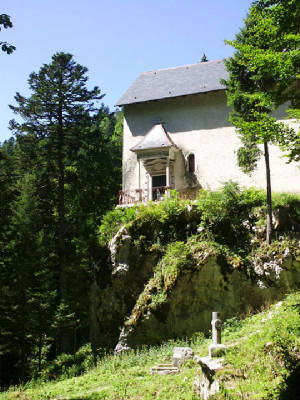
The monks leave their cells only at night, to worship together in the monastery church, and on Sundays and feast days
for a communal meal - during which there is a period for conversation.
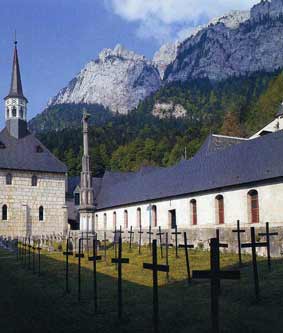
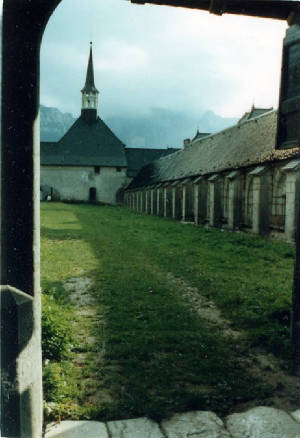
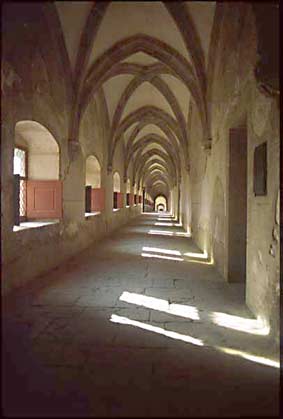
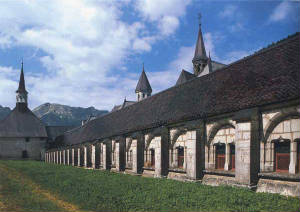
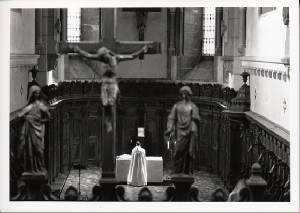
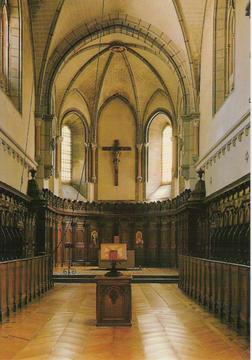
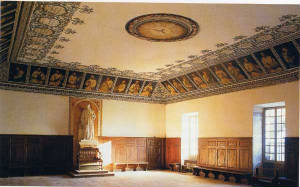
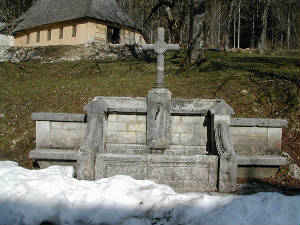
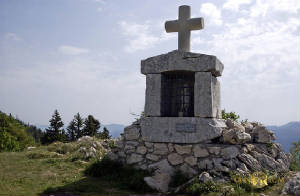
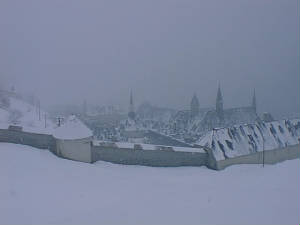
|
